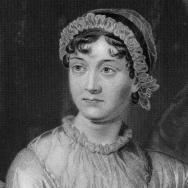Asst. Prof. Mitchell S. Jackson is accustomed to pushing the boundaries of artistic creation, both writing and teaching fiction and non-fiction. Now, the University of Chicago scholar has been recognized with a prestigious award—one that will help support a new work of historical fiction.
Jackson recently received a 2021 Creative Capital Grant, which will provide him with up to $50,000 in direct funding as well as additional long-term career development services from a community of diverse artists. Specifically, this grant will fund his project, John of Watts, which is inspired by the rise and fall of the Black cult leader Eldridge Broussard Jr.
A faculty member in UChicago’s Program in Creative Writing and Department of English Language and Literature, Jackson is one of 42 individual artists selected from nearly 4,000 applications in multiple artistic disciplines.
“When I receive resources for my creative scholarship such as the Creative Capital Grant, these awards build my confidence in the viability of the undertaking,” said Jackson, who has also received fellowships from TED, the Ford Foundation and the Center for Fiction.
“We want to help artists who are at turning points in their careers realize projects that wouldn’t be possible through traditional channels like the art market.”
Before joining UChicago in 2019, he served as a faculty member at Columbia University Arts and New York University. His UChicago colleagues and students, he said, have provided him with a wealth of new ideas. “I’ve never been in a place with this much intellectual excellence,” Jackson said.
Jackson also feels embraced by the community. A few days ago, Rachel DeWoskin—colleague in the Program of Creative Writing and an award-winning author—delivered him a loaf of home-baked challah.
His work still draws inspiration from Portland, Oregon, where he grew up with a single mother in a small Black community. In his youth, Jackson was arrested on drug charges and served time in prison. During that time, he gravitated toward literature and began experimenting with autobiographical writing. Following his release from prison, Jackson earned master’s degrees in writing from Portland State University and NYU.

Based on those tough experiences, he wrote his debut novel, The Residue Years, which received a Whiting Award and the Ernest J. Gaines Award for Literary Excellence. Jackson turned his novel into a documentary in 2013, which he co-directed, wrote, and produced. Earlier this year, he published Survival Math, a critically acclaimed memoir in essays.
John of Watts is also based on events near his hometown. Broussard was a star basketball player at Pacific University in Forest Grove, Oregon, and was selected by the Portland Trail Blazers in the eighth round of the 1974 NBA draft. But after his sports career fizzled, Broussard became an ordained minister and founded the Ecclesia Athletic Association (EAA) in 1975—promoting the organization as a way to help children in the Watts neighborhood of Los Angeles through strict discipline and athletic training.
Over the next 12 years, the EAA grew into a cult and moved its headquarters to Sandy, Oregon. The organization collapsed in 1988 with the tragic murder of Broussard’s 8-year-old daughter, Dayna, by four EAA members. While investigations took place, 53 children in EAA were moved into state care. Broussard faced federal charges for allegedly enslaving 29 children but died of complications from diabetes in 1991 before his trial date.
“I am interested in what it would take to become a Black cult leader, when we are so used to seeing White cult leaders,” Jackson said.
John of Watts will also include a 90-page prologue, which can stand apart from the novel and delves into the effect that the Watts revolt of 1965 may have had on Broussard’s psyche. “Many parallels connect the Watts revolt to the riots after George Floyd’s death in Minneapolis,” Jackson said.
“I cannot think of anyone better than Mitchell to tell this story,” said Prof. Srikanth Reddy, who received a Creative Capital Award in 2013 and teaches alongside Jackson. “It’s a difficult story about race and justice in America. The story comes to the edge of our expectations. Mitchell seeks out square pegs, which is what makes him such an extraordinary writer.”
Creative Capital, a nonprofit that supports the arts, saw similar promise in Jackson’s willingness to take risks.
“We want to help artists who are at turning points in their careers realize projects that wouldn’t be possible through traditional channels like the art market,” said Leslie Singer, Creative Capital’s interim executive director. “We look forward to seeing these projects grow to make their mark on the world.”









